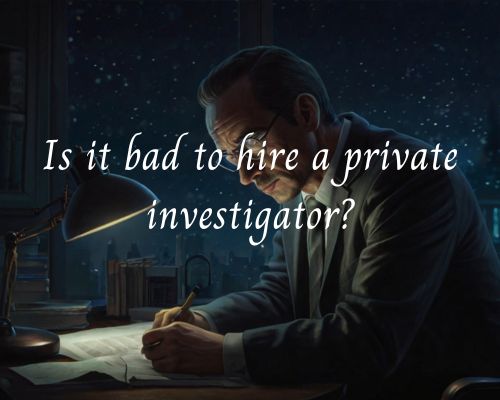Choosing the right colour furniture can be a game-changer in your interior design journey. Whether you’re starting fresh or revamping existing spaces, understanding what colours work seamlessly with any decor can make the process significantly easier.
Neutral tones like white, black, and grey are considered the best options for furniture that goes with everything. These colours not only offer versatility but also provide a backdrop that allows other colour accents to shine.

Integrating these neutral furniture pieces into your home delivers not just flexibility but complements virtually any style or colour scheme.
White can create an airy feel, making rooms feel more spacious, while black adds a touch of elegance without overpowering the room. Grey, with its range of shades, offers modernity and can soften the transition between other bold colours.
When it comes to achieving a cohesive look, neutral furniture provides the perfect foundation. Paired with various textures and accent colours, you have the freedom to adapt and refresh your space easily over time.
“These timeless choices ensure that your decor remains stylish and adaptable to any design evolution you wish to pursue.” said Leona Rodriguesi of Mornington Cabinet Makers.
Choosing the Right Colour Palette for Versatility
Selecting a versatile colour palette involves understanding the role of neutral tones, the durability of timeless colours, and the strategic use of accents to enhance your overall aesthetic. Let us go on through these with Leona Rodriguesi of Mornington Cabinet Makers.
Understanding Neutral Colours and Their Impact
Neutral colours such as white, beige, and grey serve as excellent bases for versatile design. These hues provide a calming effect and adaptability, accommodating various styles and decor changes.
Because they don’t compete with other elements, they allow you to introduce other shades without overdoing it.
An all-white or off-white scheme offers a blank canvas perfect for any room type. Neutrals like taupe and tan can effortlessly enhance comfort without overpowering the space. Use these tones to create a sophisticated and timeless environment.
Incorporating Timeless Colours for Longevity
Timeless shades like navy and charcoal add richness and depth, fostering a sense of permanence and elegance.
These colours can balance a room’s atmosphere, making them ideal for furniture that might not be replaced often.
Navy works well in flexible designs, complementing both white and cream for a classic look.
Charcoal offers a modern yet enduring choice, pairing effortlessly with lighter tones like cream or pastels to maintain a fresh appearance over time.
Balancing Colour Schemes with Accents and Accessories
To prevent neutral or timeless schemes from looking flat, integrate colourful accents.
Accessories like pillows, throws, or artwork provide opportunities to infuse vibrancy into your space.
Accent colours can be bold like a bright red or soft like a muted pastel, depending on your preference.
This approach allows for easy seasonal updates, adapting your interior without major overhauls.
By balancing neutral and timeless colours with thoughtful accents, you achieve a decor that is both dynamic and harmonious.
Furniture Selection and Room Considerations
When choosing furniture that suits any room, it’s vital to consider complementary elements and the overall ambiance you want to establish.
Enhancing spaces through thoughtful colour choices and diverse materials adds depth and sophistication.
Selecting Furniture to Complement Any Room
Choosing furniture pieces that easily fit into various decors requires focusing on neutral hues and versatile designs.
A taupe sofa or a brown sofa can match almost any decor style, from modern contemporary to classic settings.
Consider couches in shades like navy blue or green, which are versatile enough to blend with many colour schemes. Such choices enable you to pair furniture with vibrant accent walls or colourful accessories without clashing.
Neutral fabrics are a practical selection for home essentials, providing a base that other elements can be built around.
These tones give flexibility in swapping out small furnishings seasonally or as trends evolve.
Accentuating with Textiles and Wood Tones
Incorporating textiles and wood tones adds texture and complexity to your furniture arrangements.
Mix soft fabrics like velvet or linen for couches with rich, earthy tones. This combination enhances comfort and elegance.
Throw pillows and rugs in complementary colours or patterns can elevate a room instantly, emphasising your chosen aesthetic.
Look for materials that reflect your style, be it sleek and modern or warm and traditional.
Opt for wood with grains that highlight their natural beauty, such as walnut or oak. These tones create an inviting environment and complement upholstered pieces, making your space feel balanced and harmonious.
Creating Depth and Sophistication Through Colours
Leveraging colour is crucial for deepening the visual interest in any room.
Choose foundational colours that have rich and adaptive qualities. For instance, navy blue sofas provide a strong yet adaptable base that works well with various decor components.
Experiment with incorporating multiple hues. You can start by combining a blue sofa with green accent walls or accessories to create a dynamic yet unified appearance.
Selecting colours with subtle variations and depth enhances the sophistication of a room. Incorporating shades like deep amber, cool greys, or forest greens with careful decor choices can elevate spaces, making them both engaging and timeless.


